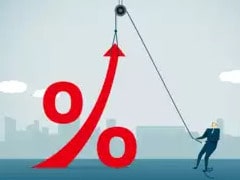
In a notable convergence of the corporate and political worlds, prominent CEOs are making their foray into the realm of politics. Foxconn founder Terry Gou and Roivant Sciences founder Vivek Ramaswamy have both embarked on political journeys, with Gou seeking the presidency of Taiwan and Ramaswamy pursuing a Republican candidacy in the United States. While the transition from the corporate boardroom to the political arena presents its challenges, the unique skills and perspectives that CEOs bring can offer significant benefits to the world of politics.
Terry Gou’s recent announcement that he will run for president of Taiwan as an independent candidate has garnered significant attention. He joins a growing trend of business leaders who aspire to bring their expertise and vision to the realm of governance. Notably, Vivek Ramaswamy, the founder of Roivant Sciences, has also entered the political arena, running as a Republican candidate in the United States.
CEOs are known for their abilities in managing budgets, fostering job creation, and driving economic growth – skills that can be highly valuable in the world of politics. However, the transition from the corporate sector to government is not without its complexities. CEOs must navigate the intricacies of policymaking, manage conflicting interests, and adapt to a new set of challenges.
One of the key advantages that CEOs bring to politics is their expertise in financial management. Successful CEOs are adept at overseeing budgets, making strategic financial decisions, and driving efficiency in their organizations. These skills can translate into effective fiscal management within government, where responsible allocation of resources is paramount. CEOs’ financial acumen can help streamline government spending, reduce waste, and promote economic stability.
Furthermore, CEOs have a proven track record of creating jobs and driving economic growth. Their ability to identify opportunities for expansion and investment can translate into policies that encourage job creation and stimulate economic development. In a time when many nations are focused on post-pandemic recovery and revitalizing their economies, CEOs-turned-politicians can bring a wealth of knowledge and experience to the table.
However, the transition from the corporate world to politics is not without its challenges. Government is characterized by a different set of dynamics, including the need to balance diverse interests, build coalitions, and make decisions that reflect the best interests of the broader population. CEOs may initially struggle with these complexities, as they differ significantly from the corporate decision-making processes they are accustomed to.
Additionally, CEOs-turned-politicians often face scrutiny over their motivations and their ability to represent the interests of the public. Skepticism regarding potential conflicts of interest and corporate influence in politics can create challenges for these individuals as they seek to gain public trust. Transparent communication and a demonstrated commitment to serving the public interest are essential for overcoming these concerns.
To successfully transition from CEOs to effective political leaders, business leaders must be willing to evolve and adapt. They should seek to understand the intricacies of government, develop an appreciation for the diverse perspectives of their constituents, and prioritize the public good above all else. Building a team with expertise in governance and policy can also be instrumental in making a smooth transition.
Terry Gou and Vivek Ramaswamy’s decisions to enter the political arena represent a growing trend of CEOs who aspire to make a difference beyond the corporate world. Their candidacies serve as a reminder that, with the right skills and approach, business leaders can successfully contribute to the development of effective public policies, job creation, and economic growth.
Moreover, the inclusion of CEOs in politics can bring fresh perspectives and innovative solutions to longstanding challenges. Their experiences in leading diverse teams, managing resources, and driving organizational success can be harnessed to address complex issues such as healthcare reform, infrastructure development, and environmental sustainability.
In conclusion, the transition of CEOs into politics offers both opportunities and challenges. While CEOs possess valuable skills that can benefit governance, they must adapt to the unique demands of the political arena. The entry of leaders like Terry Gou and Vivek Ramaswamy into politics reflects a growing recognition of the potential synergy between the corporate and political worlds. As business leaders continue to explore this path, their contributions to policymaking and governance could prove instrumental in shaping a brighter future for their respective nations and the global community.










